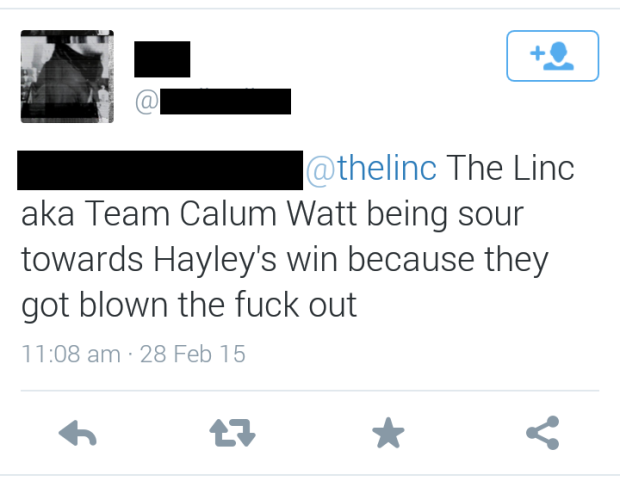It’s been SU election week this week, and that usually makes everything here at The Linc go a bit mad. There’s a print edition to finalise, send to the printers, and distribute; there’s the candidate question time to report on; an exit poll to produce and promote; and a wealth of tricky editorial decisions to be made before and during the climactic action of results night.
Somewhere between all this, someone usually accuses us of being biased, or in some way non-partisan. It happens at least once every year. Last year, for example, we received this tweet:

It’s a very odd accusation. The Linc has a policy of not endorsing or favouring any candidates in anything, whether the election is student, local, or general. There are lots of reasons for this, so I thought I’d share a few of them with you.
Endorsements have an impact on journalism
If we were to endorse one candidate, other candidates would probably stop talking to us, because they couldn’t trust us to treat them fairly. We don’t want that to happen, because not only is it no good for us as journalists, it’s no good for you as readers who want to stay informed about what’s happening.
Similarly, if the candidate we were endorsing did something immoral, illegal, or just plain stupid; it would put us in a bit of an editorial pickle. If we reported on it, we’d look like idiots for endorsing them; not reporting on it would be incredibly disingenuous for us as journalists.
Put simply, our integrity as journalists is more important than the unlikely chance we have of influencing policy.
Our audience is looking for non-partisan material
There’s evidence to suggest that young people engage more with non-partisan material, i.e. stuff that doesn’t have an obvious swing towards one candidate or political party.
We want students to read and engage with our articles. Forcing our opinions down students’ throats will only put them off.
We don’t all agree with each other
The Linc has an editorial team of 15 people, and we’re all very different from each other. We certainly don’t vote in the same way. To decide on candidates to endorse would probably result in a fight, or at least a passive-aggressive journalist Cold War.
And that’s without extending it to our outer circles of 100+ crucial volunteer writers. If we decided to back someone they didn’t like, they’d take their writing somewhere else, and frankly, as a small student publication, we’d be stuck without them.
Whoever wins, we still have to work with them
As much as our journalism is independent, we’re reliant on the Students’ Union, our councillors, and our MP to talk to us, so we can inform students of what they think and what they’re doing. To actively foster a bad relationship with them because we’d backed another candidate would be silly.
We’re funded by the University
The fact that the School of English and Journalism fund us but allow us to be editorially independent is great, and a much better set-up than a lot of other student papers have.
However, University rules state that they don’t get involved in the SU elections, and to have University money funding an endorsement of a candidate would put both them and us on very rocky ground indeed.
Sometimes, the candidates just aren’t great
A number of national papers, including the Independent and the Financial Times, decided to endorse a coalition for the 2015 general election. For us, though, the idea of endorsing an unhappy compromise doesn’t really appeal. Endorsing candidates for the sake of having some political allegiance isn’t worth it.
Students are a broad and diverse community
There’s often a stereotype that students are leftie, no-platforming, safe space kids who don’t understand what the real world is like. (Or, at least, that’s what Twitter tells me.)
We’re students ourselves and we know that’s not true. There are left-wing and right-wing students, poor and rich students, students from all over the world and from a whole range of class systems I won’t even pretend to understand.
That’s what’s so nice about being at Lincoln – the variety of opinions and viewpoints that we get. You probably know things we don’t. So it’s our policy not to endorse anyone, and to let you make the right decision for yourself – whether that’s voting for a candidate, or not voting at all.

